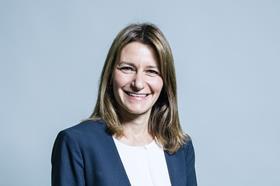Flexible court hours have returned to the agenda with plans revealed for a further round of pilot schemes – but the proposals will not include the criminal courts.
The Ministry of Justice today announced it will test early and late sittings in civil and family courts, with the aim of giving people greater access to hearings that can fit around their working and personal lives.
But flexible hours will not be piloted in criminal courts, after a backlash to the idea when it was floated – and subsequently postponed – last year. Plans were to start some hearings as early as 8am and keep the court open until 8pm.
Courts in Manchester and Brentford will run the pilots for six months, working outside the traditional 10am-4pm sitting day, to see how flexibility can work for staff and legal professionals. The pilots are expected to start next spring, with more details available here.

Justice minister Lucy Frazer said: ‘We want to make our courts and tribunals more accessible to the public. This pilot assesses whether and how we can give people greater flexibility in their busy lives.
’We listened carefully to the views of legal professionals and others before going ahead, and as a result flexible operating hours are not being piloted in criminal courts. We will now test different options relating to operating hours in two civil and family courts and an independent evaluation will be carried out before any decisions are made about further roll-out.’
Case types proposed for inclusion in the pilots announced today were chosen following input from the legal sector and local judiciary, and views of court users and professionals will be taken in to account in the evaluation. A full evaluation will be conducted by an independent organisation, the ministry said.
In a document accompanying the announcement, the MoJ recognises concerns from lawyers that the plans will affect their work/life balance and may not be practical for some clients or practitioners.
This particular effect will be closely monitored by the independent evaluator and considered in any recommendations for future expansion.
Christina Blacklaws, president of the Law Society, said the profession would cautiously welcome the smaller scale of the trial, and the assurance that the outcome of the pilots would be robustly assessed.
But she said: 'Athough participation is voluntary, we remain concerned that solicitors with children or other caring responsibilities as well as more junior practitioners and some religious groups may be disadvantaged by these longer hours. In addition, our own analysis indicates the extension of hours will increase the costs to the firms involved.'
Blacklaws added that HMCTS had taken on board the Society's recommendation for legal aid family solicitors to be compensated through a pilot participation fee for court sessions outside the hours of 9.30am to 5pm. Further details of this fee are still to be confirmed.
Chris Henley QC, chair of the Criminal Bar Association, said the abandonment of flexible hours in criminal courts was to be welcomed and followed strong lobbying from practitioners.
'This does not solve the many remaining issues that are making our working lives more and more difficult but it is a step in the right direction,' he added.



























23 Readers' comments